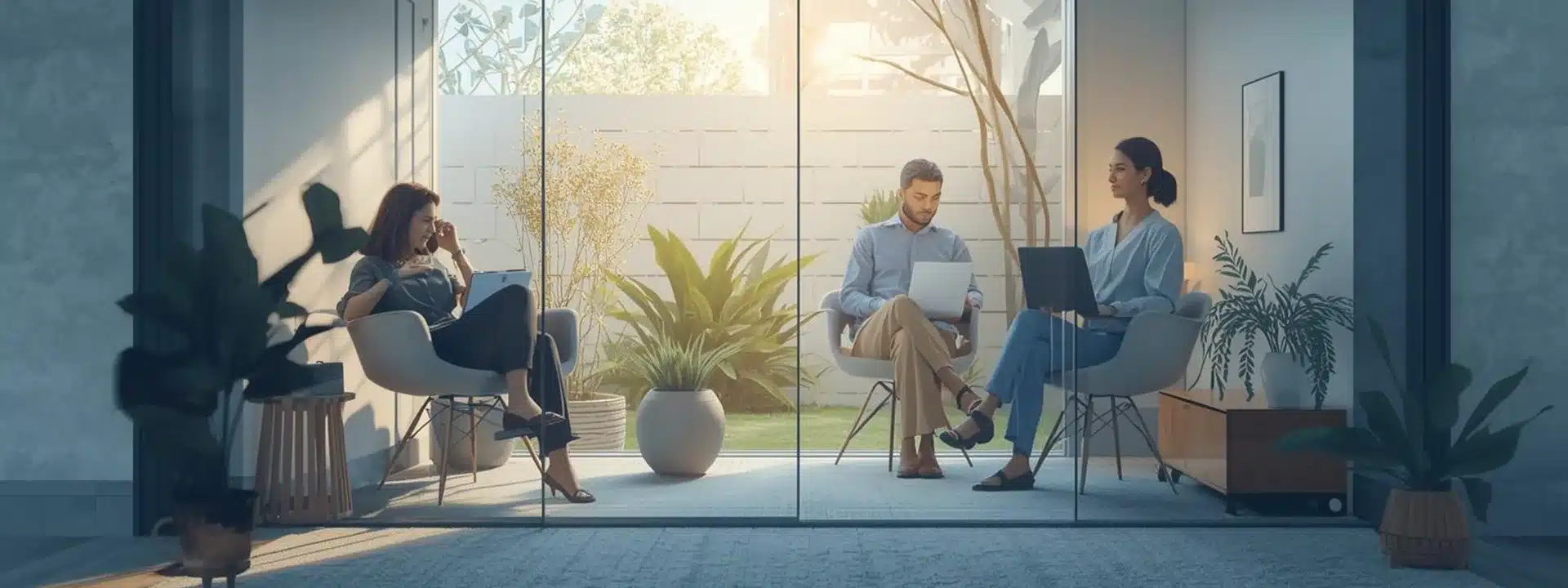If you’re dealing with both mental health struggles and substance use, you’re probably already aware that traditional treatment isn’t enough. But you’re not out of options.
Traditional treatment often falls short because it tends to focus on just one issue, while ignoring the other. That rarely works. These problems are usually connected, and healing means tackling both together. That’s where dual diagnosis residential care comes in.
Dual diagnosis residential care treats both problems together, in one place. You don’t have to go to different doctors. You won’t get mixed messages. Instead, you stay at a treatment center where a team works together to help you heal.
What Is Dual Diagnosis Residential Care?
Dual diagnosis residential care is a one-stop solution. You live at a facility while getting help for both a mental health disorder and a substance use disorder. The term “dual diagnosis” simply means having two conditions at the same time.
Here’s how Dual Diagnosis Residential Care works:
- You stay at the treatment center full-time, away from old habits and stressful situations.
- During your stay, a team of doctors, therapists, and specialists works with you daily.
- Your treatment plan is personalized. It addresses both your mental health needs and your substance use problems.
Common conditions treated include:
- Mental health: depression, anxiety, bipolar disorder, PTSD
- Substance use: alcohol, drugs, prescription medication misuse
Research conducted in 2024 shows that using personalized strategies leads to better treatment outcomes than one-size-fits-all approaches. At Alter Behavioral Health, we understand that healing looks different for everyone. We create a personalized treatment plan just for you so you can heal at your own pace.
Benefits of Dual Diagnosis Residential Treatment
Getting both conditions treated together has real advantages. According to Addiction Group, fewer than 15% of individuals with co-occurring disorders receive treatment for both conditions in a specialized, integrated program. That needs to change.
Here’s why this approach makes a real difference:
- You break the cycle. When you address both problems at once, you understand how they affect each other. Maybe you drink because you feel anxious, or you feel depressed because of your drinking. You start to see patterns—and learn how to change them.
- You get time to heal. Research shows that patients in long-term residential programs had better outcomes than those in short-term programs, with longer stays allowing patients more time to learn skills necessary to maintain recovery.
- You’re removed from triggers. Living at a treatment center keeps you away from people, places, or things that usually lead to substance use.
- Consistent support. You get 24-hour support. If you’re having a hard time at 2 a.m., someone is there to help.
- You get structure. You have a daily schedule with therapy sessions, group activities, meals, and rest time. This routine helps your body and mind heal. You also meet others going through similar challenges, which can make you feel less alone.
Who Needs Dual Diagnosis Residential Care?
If you aren’t getting better with outpatient programs, regular therapy, and counseling, residential care might be the next step.
You might benefit from this level of care if:
- Outpatient treatment hasn’t worked. You’ve given it a shot, but the progress just isn’t sticking.
- Your symptoms are severe. You’re having thoughts of self-harm, can’t stop using substances, or your daily life has become unmanageable.
- You’ve only treated one issue. If you’ve been treated for one problem but not the other and haven’t seen improvement, dual diagnosis residential care could help.
- Your home environment isn’t helping. If staying sober or mentally stable feels impossible where you live, staying at a treatment facility gives you the space you need to focus on getting better.
How Dual Diagnosis Residential Programs Work
Walking into a dual diagnosis facility might feel overwhelming, but it’s less scary if you know what to expect.
Here’s what happens:
- You’re assessed: When you arrive at a dual diagnosis residential facility, you first go through an assessment. Staff members ask about your history, symptoms, and goals. They may run medical tests to understand your physical health.
- Your plan is built: Based on your needs, the team creates your treatment plan. This plan includes individual therapy, group therapy, behavioral therapy, and medications.
- You follow a healing routine: Your day might also include activities like exercise, art, music, or meditation. These activities help you find healthy ways to cope with difficult feelings.
At Alter Behavioral Health, we combine evidence-based approaches with personalized care. Our expert clinical team monitors your progress and adjusts your plan as needed.
When you’re ready to leave, our team prepares an aftercare plan for you so you are fully prepared for life after residential care.
What to Expect in Dual Diagnosis Residential Facilities
Most facilities are designed to feel comfortable rather than clinical. At quality centers like Alter Behavioral Health, you’ll find well-maintained living spaces, nutritious meals prepared by staff, and peaceful outdoor areas.
A Typical Day Looks Like This:
- Morning: Start with breakfast, followed by a morning therapy session. You might have individual counseling, group therapy, or educational classes about mental health and addiction.
- Afternoon: Engage in healing activities like yoga, art therapy, or recreational time to help you process emotions and build healthy habits.
- Evening: Evenings usually involve free time to relax and reflect.
You’ll also meet regularly with doctors and therapists to track your progress.
Choosing the Right Dual Diagnosis Residential Center
Not all treatment centers are the same. Choosing the right treatment centre is important.
Here’s what to look for:
- Make sure the facility specializes in dual diagnosis. The staff should have experience treating both mental health and substance use disorders.
- Check what treatments the center offers. Good programs use evidence-based therapies that research has shown to work.
- Ask about the staff’s qualifications. Doctors, therapists, and counselors should be licensed professionals.
- Consider the environment. Visit the facility if possible. Does it feel safe and welcoming? Are the living spaces clean and comfortable? A positive environment supports healing.
Alter Behavioral Health offers comfortable accommodations that support recovery in a peaceful setting.
Cost of Dual Diagnosis Residential Care and Insurance Coverage
The cost of residential treatment varies widely depending on the length of stay, location, and services provided. While treatment is an investment, most people find that insurance helps cover a significant portion.
Many insurance companies recognize dual diagnosis residential care as medically necessary. This means they provide coverage just like they would for other health conditions. The exact amount covered depends on your specific insurance plan.
Many facilities have admissions coordinators who handle insurance questions. They can tell you what your plan covers and what you might need to pay yourself. At Alter Behavioral Health, we accept most major insurance providers. Verify your insurance here.
Don’t let cost concerns stop you from seeking help. Some facilities offer payment plans or financing options if you need help managing costs.
Taking the First Step Toward Healing
Recovery from co-occurring disorders is possible with the right help. Dual diagnosis residential care gives you the support and safe space you need to address both your mental health and substance use together.
Don’t wait for things to get worse. Recovery starts with one phone call. Contact us today to learn more about dual diagnosis residential care and how our programs can help you or someone you care about find lasting healing.
Frequently Asked Questions
How long does dual diagnosis residential care last?
Treatment length varies based on your needs. Most programs last between 30 to 90 days, though some people benefit from longer stays.
Can I have visitors during residential treatment?
Most facilities allow visitors during designated times. Some centers encourage family involvement as part of treatment.
What should I bring to residential treatment?
Bring comfortable clothing, toiletries, any prescribed medications, and personal items that provide comfort, like photos.
What happens after I complete residential treatment?
Our team helps you plan for life after residential care. This usually includes connecting you with support groups and creating a relapse prevention plan to support your continued recovery.



